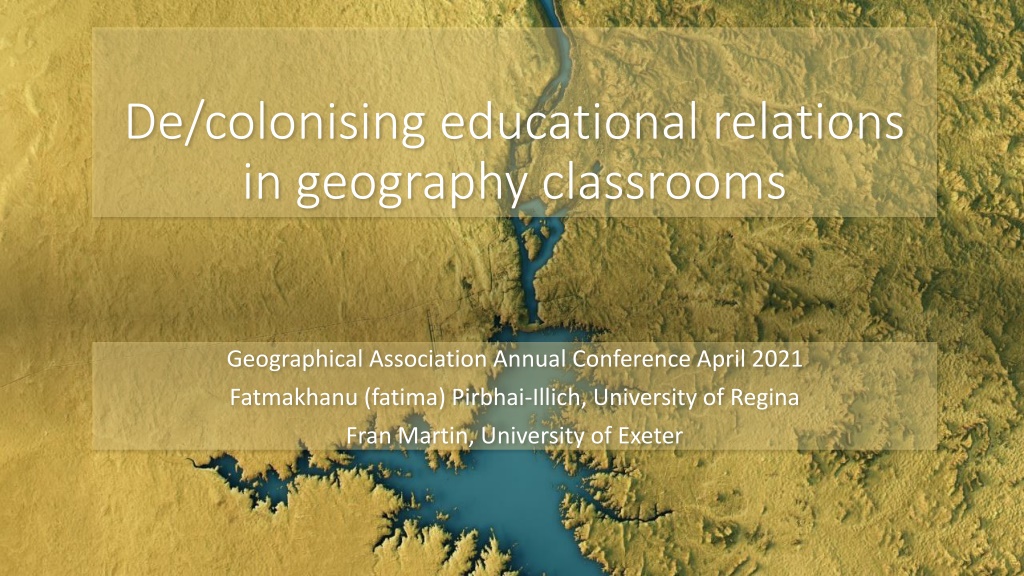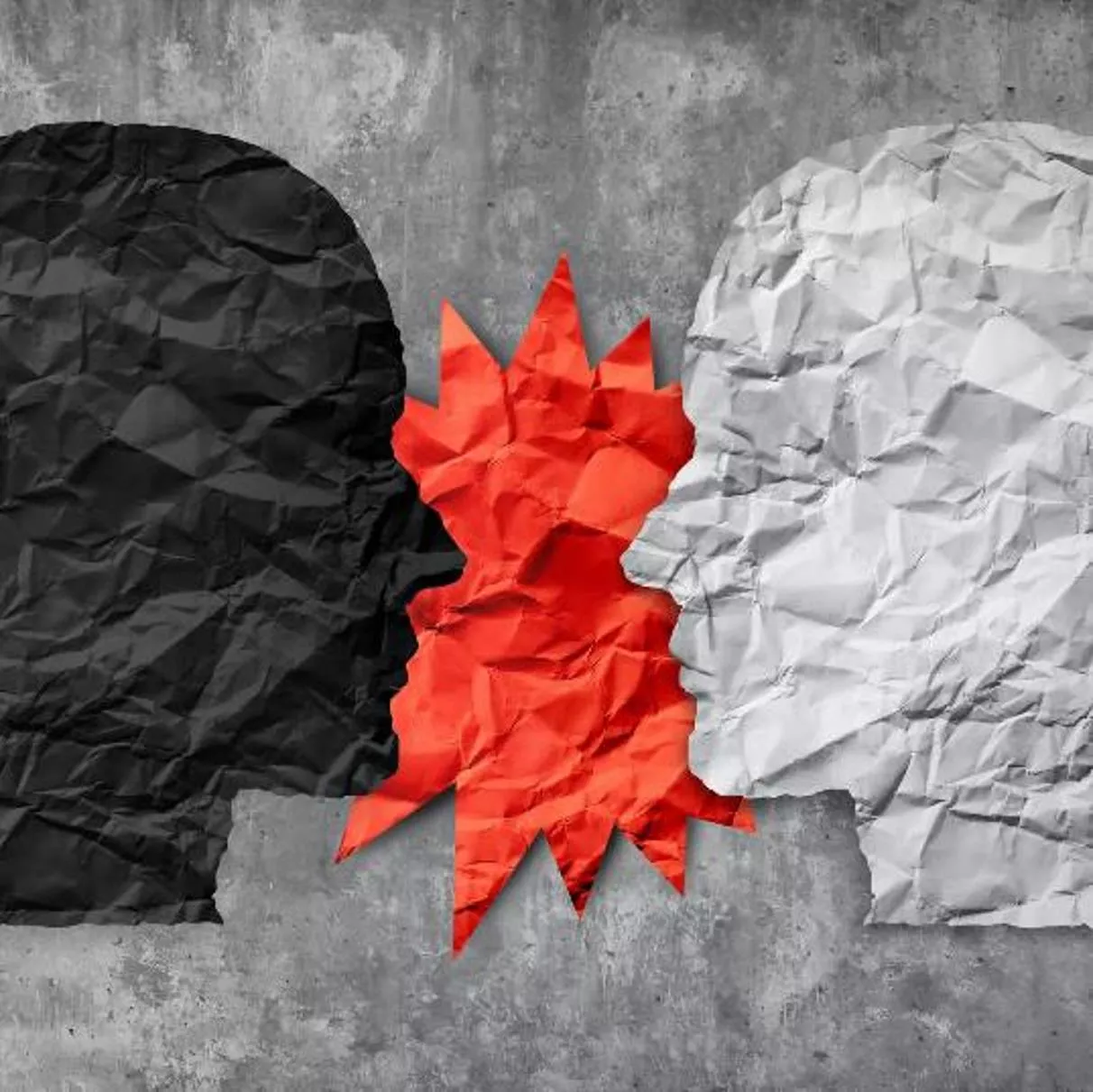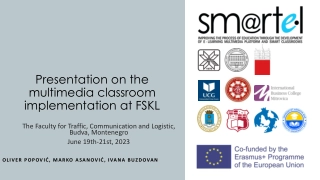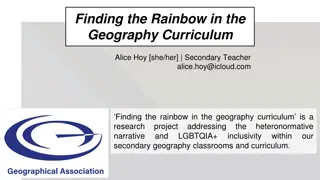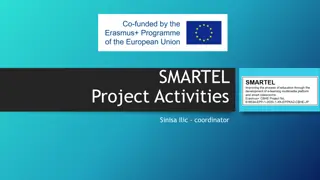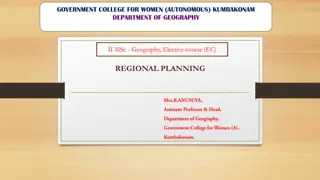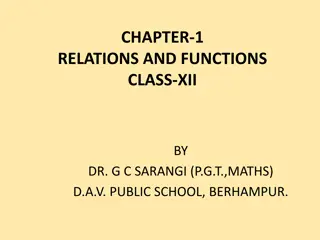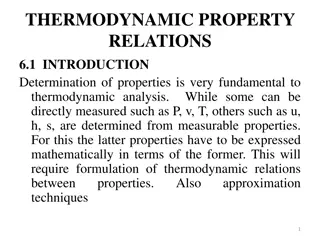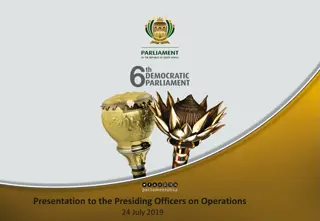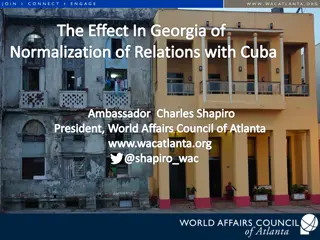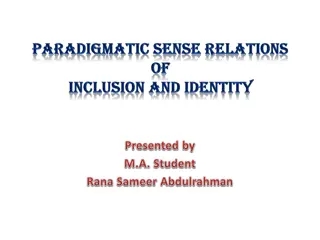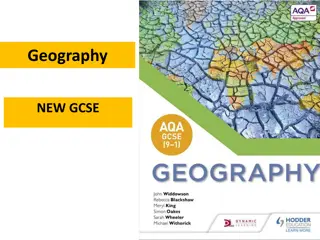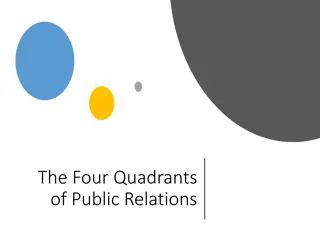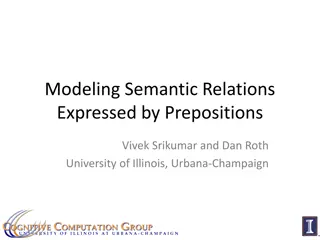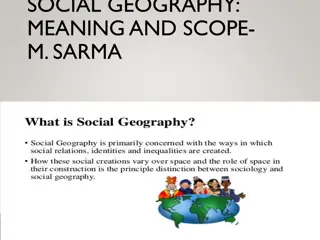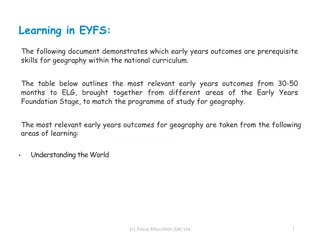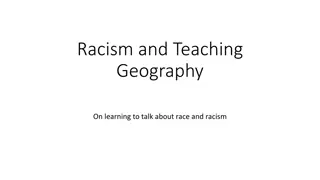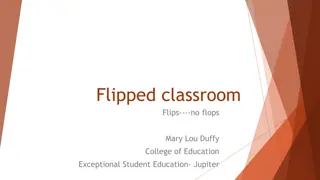De/colonising Educational Relations in Geography Classrooms
This presentation explores the dynamics of colonialism, identity, and power in educational settings, emphasizing the lasting effects of colonial discourses on Western culture and thought. It discusses the erasure, appropriation, and language of coloniality, highlighting the need for critical awareness and decolonization efforts in geography classrooms.
Download Presentation

Please find below an Image/Link to download the presentation.
The content on the website is provided AS IS for your information and personal use only. It may not be sold, licensed, or shared on other websites without obtaining consent from the author. Download presentation by click this link. If you encounter any issues during the download, it is possible that the publisher has removed the file from their server.
E N D
Presentation Transcript
De/colonising educational relations in geography classrooms Geographical Association Annual Conference April 2021 Fatmakhanu (fatima) Pirbhai-Illich, University of Regina Fran Martin, University of Exeter
Situating ourselves identity and colonialism Histories Colonialism Geographies Connection to land Identities Citizenship Cultures
Locating Locating identities identities Who are you? What brought you to this space? Breakout Rooms
https://everydayorientalism.wordpress.com/2020/04/29/teaching-orientalism-through-art-practice-othered-the-virtual-exhibit/https://everydayorientalism.wordpress.com/2020/04/29/teaching-orientalism-through-art-practice-othered-the-virtual-exhibit/ Alastair Pennycook (1998): colonialism is not simply the context in which European colonial nations' cultures were imposed upon colonised nations; it is also the context that produced discourses which have lasting effects in large domains of Western thought and culture. Colonialism: European expansion; full or partial political control of other countries; economic exploitation Coloniality: Underlying logic of colonialism; racialized, objective categorization; hierarchical; binary, oppositional constructions of self and Other Colonial discourses persist today through language and how it is used to shape our lives culturally and materiality European nations and colonial discourses
Coloniality of Coloniality of power and its power and its mechanisms mechanisms Relations Erasure Appropriation White supremacy Language Land Superiority Culture Knowledges Domination Mind Bodies Control Body Cultures Possession Self Resources Exploitation Spirit Paternalism Saviourism
Colonial geographies: Colonial geographies: Spaces, places and boundaries Spaces, places and boundaries Power , identity & belonging: social-material-spiritual relations 6
Colonial geographies and Colonial geographies and the white possessive the white possessive The significance of property ownership as a prerequisite to citizenship was tied to the British notion that only people who owned the country, not merely those who lived in it, were eligible to make decisions about it (Ladson-Billings, 2009, p. 25). The British concept of divine right to sovereignty validated the their claim to ownership of the land and to imagine Australia as a white possession (Moreton- Robinson, 2015). Aileen Moreton-Robinson 2015. 7
Colonial geographies: Economic and epistemological appropriation
The coloniality of Geography: The coloniality of Geography: categorization and fragmentation categorization and fragmentation Disciplinary knowledge Human geography Physical geography Environmental geography Cultural geography Social geography Geomorphology Climatology Ecosystems Sustainability
Colonial discourses in geography Colonial discourses in geography Developed-developing-underdeveloped Civilised-uncivilised-exotic Positioning of Africa, India, Bangladesh, Pakistan Positioning of USA, Canada, Australia, New Zealand Homogenisation Democratic-undemocratic Superior-inferior Wealthy-poor Donor-recipient
The coloniality of geography education The coloniality of geography education The education system The discipline The The curriculum classroom
Geography and British Fundamental Values How is the nation and national identity imagined in this image? Pirbhai-Illich & Martin (2020). Fundamental British Values: Geography s contribution to understanding difference. Primary Geographer, issue 103, p. 23-25. https://www.geography.org.uk/Journal- Issue/fb40ca15-4c56-4e3b-bbda- c774b8487bfd
Classroom teaching & de/coloniality Classroom teaching & de/coloniality De/colonial educational relations Colonial educational relations Critical relationality Intersubjective, interconnected, interdependent In relation with (not to) Invitation & hospitality Space, place and boundaries Often object-focused Potential violence epistemic and ontological harm Categorisation and separation (subject silos; knowledge hierarchies) Homogenisation
Importance of history: How might you teach someone whose community has had negative relationships with your community in the past? How might you teach someone whose community has been forced by your community to be and know according to your ways rather than theirs? Ways of being / orientations: Being with Inviting plural ways of being, knowing and doing Being attentive to ones own translations Humility Respect Reciprocity Working with invitation and hospitality
Creating spaces of belonging
De/colonizing educational relationships: Teacher identities and positioning Who am I? How do the intersecting dimensions of my identity affect who I am and how I teach? (race, ethnicity, socio-economic status, religion, gender, ability, sexual orientation). To what extent do my choices over what and how I teach unconsciously reflect my own identity? (unconscious bias) To what extent do I consciously invite the ways of being that are different to my identity into the classroom? How can I create learning spaces of belonging rather than those that are alienating? How can I move away from the divisive (colonial) ways of thinking that marginalise and disenfranchise different groups?
Geographys complicity in colonialism and coloniality __________________________________________________ The ongoing coloniality of geographical knowledge production is not only widely accepted, it is also now every geographer's problem. Critical debates around the meaning and shape of decolonial geographical education and knowledge production must be kept alive. Not only must we not stop debating decolonial education, but we must also make sure to translate our debates into educational praxis. (p. 9) To what extent are we, as students, teachers, researchers, lecturers, and professors, relating to and working with each other every day in a way that is underpinned by lessons learned from colonial oppressions and grassroots decolonial struggles? (p. 10) Marcin Stanek (2019). Decolonial Education and Geography: Geography Compass 13(12), p. 1-13.
